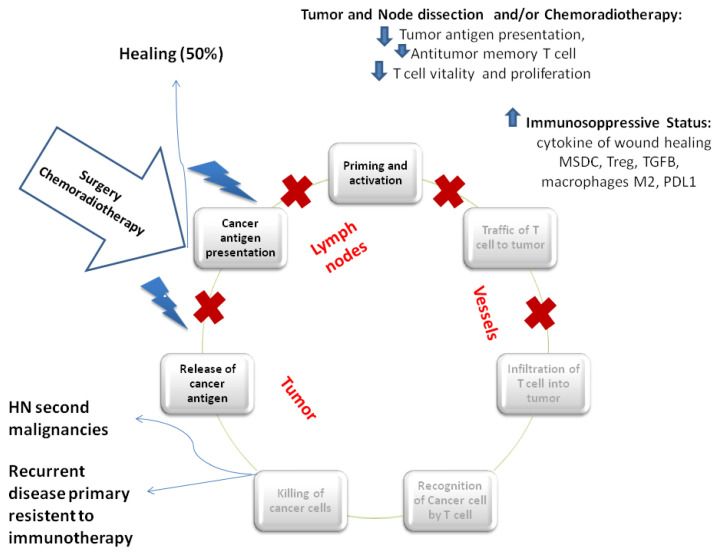Figure 2.
Locoregional treatment and immunity cycle. Locoregional treatment could block the immunity cycle at different level. Primary tumor resection induces a reduction in tumor antigen presentation, T cell activity, and, at the same time, the development of anti-tumor specific memory T cell which is definitively compromised by local lymph nodes dissection. The first postoperative phase is characterized by the increase of cytokines of wound healing, PD-L1 expression, myeloid-derived suppressor cells (MDSC), macrophages M2, and Treg. Similarly, radiotherapy promotes the release of cancer antigen through the induction of immunogenic cell death, increasing the antitumor T cell response and cross antigen presentation. Contemporarily, radiotherapy could promote an immunosuppressive status through the increase of local MDSC, PD-L1 expression, Treg, and macrophages M2. Healing occurs if all neoplastic cells have been radically removed after the intensive multimodal treatment and if micrometastatic disease is completely eradicated. However, head and neck second malignancies could occurr for impaired immunosurveillance. Recurrent disease with a primary induced resistance to immunotherapy is the result of an incomplete and ineffective first immune response.

